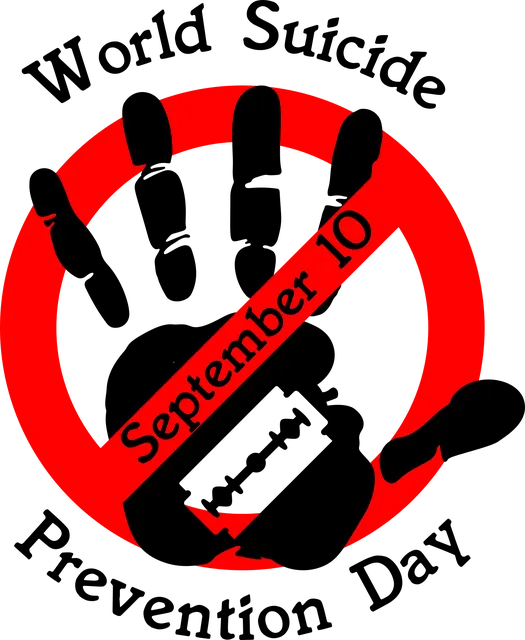Mental health professionals face burnout and compassion fatigue due to emotional demands and heavy caseloads. The Superior Kaiser mental health programs mitigate these risks by offering resources like Compassion Cultivation Practices and Self-Awareness Exercises, fostering a culture of self-care and support. They provide comprehensive risk assessments using evidence-based strategies, empowering practitioners to create personalized treatment plans focusing on positive thinking, self-esteem, and mind over matter techniques. Through holistic well-being practices, burnout prevention, and continuous adaptation, Superior Kaiser ensures professionals maintain career satisfaction while delivering high-quality care.
Mental health professionals face unique challenges, from high-stress environments to potential patient risks. Effective risk management planning is essential for maintaining a healthy work-life balance and ensuring patient safety. This article explores strategies tailored specifically for these professionals, focusing on the role of comprehensive risk assessment and personalized plans. We delve into implementing resilience strategies, continuous monitoring, and adaptations within superior Kaiser mental health programs to foster a supportive environment.
- Understanding Mental Health Professional's Unique Risks
- The Role of Comprehensive Risk Assessment
- Developing a Personalized Risk Management Plan
- Implementing Strategies for Resilience and Prevention
- Continuous Monitoring and Adaptation in Kaiser Mental Health Programs
Understanding Mental Health Professional's Unique Risks

Mental health professionals often find themselves navigating a complex web of unique challenges and risks that set them apart from their counterparts in other fields. This is largely due to the inherent nature of their work, which involves profound emotional connections, intense caseloads, and high-stakes decision-making. The demands of providing empathetic support while managing one’s own mental well-being can lead to a range of issues, from burnout and compassion fatigue to moral distress and professional isolation.
The Superior Kaiser mental health programs recognize these specific risks and offer valuable resources, such as Compassion Cultivation Practices and Self-Awareness Exercises, designed to fortify the resilience of mental health professionals. By prioritizing Mental Health Awareness, these programs foster a culture where seeking support is normalized, encouraging practitioners to tend to their own minds and maintain a healthy work-life balance. This proactive approach not only benefits individuals but also ensures that mental health professionals can continue to provide optimal care for years to come.
The Role of Comprehensive Risk Assessment

Mental health professionals are tasked with helping individuals navigate complex emotional landscapes, making a comprehensive risk assessment an indispensable tool in their arsenal. This process involves meticulously evaluating a client’s psychological and social factors, past traumas, current stressors, and potential triggers to predict and mitigate risks of harm or relapse. By employing superior Kaiser mental health programs, practitioners can delve into these assessments with a robust set of evidence-based tools, tailored to the unique needs of each individual.
A thorough risk assessment enables professionals to develop personalized treatment plans that foster positive thinking, self-esteem improvement, and the application of mind over matter principles. It allows for early intervention, proactive crisis management, and informed decision-making, ultimately enhancing the effectiveness of care provided. This proactive approach not only ensures the safety and well-being of clients but also fosters a supportive environment conducive to healing and recovery.
Developing a Personalized Risk Management Plan

Developing a personalized Risk Management Plan is an integral part of being a mental health professional. It involves proactively identifying potential risks and implementing strategies to mitigate them, ensuring the safety and well-being of both clients and practitioners. This plan should be tailored to each individual’s unique needs and circumstances, given that every client presents with distinct challenges and vulnerabilities.
At Superior Kaiser mental health programs, we understand the importance of comprehensive risk assessment for mental health professionals. By evaluating factors such as case complexity, cultural considerations, and personal resilience, we guide practitioners in crafting effective plans. These plans often incorporate strategies like self-care practices, supervision, and access to support networks, fostering a robust emotional healing process. Effective risk management enables mental health professionals to provide quality care while maintaining their own well-being, ultimately contributing to the success of their practice.
Implementing Strategies for Resilience and Prevention

Implementing strategies focused on resilience and prevention is a key component of risk management planning for mental health professionals. The Superior Kaiser mental health programs prioritize holistic well-being, integrating evidence-based practices to foster emotional healing processes among healthcare providers. These initiatives often encompass comprehensive training, such as Cultural Competency Training for Healthcare Provider, which equips practitioners with the skills to navigate diverse patient populations and mitigate potential cultural triggers.
Burnout Prevention Strategies for Healthcare Providers are another critical aspect, designed to enhance resilience through stress management techniques, self-care practices, and fostering a supportive work environment. By prioritizing these proactive measures, mental health professionals can better manage risks, sustain career satisfaction, and ultimately provide higher quality care to their patients.
Continuous Monitoring and Adaptation in Kaiser Mental Health Programs

The success of Kaiser Mental Health Programs lies in their commitment to continuous monitoring and adaptation. These superior programs recognize that mental health is a dynamic field, with new research, therapies, and societal shifts occurring constantly. Therefore, they implement regular reviews and updates to ensure their strategies and interventions remain evidence-based and culturally responsive. Healthcare Provider Cultural Competency Training plays a pivotal role in this process, empowering professionals to navigate diverse client backgrounds and deliver tailored care.
Through the Mental Wellness Podcast Series Production, Kaiser Mental Health Programs also foster ongoing engagement with both clients and providers. This medium provides a platform for sharing best practices, personal stories, and expert insights, enhancing knowledge exchange and community support. Moreover, by integrating Trauma Support Services, these programs address the unique needs of individuals who have experienced trauma, demonstrating a holistic approach to mental health management that is both adaptive and compassionate.
Mental health professionals, like any high-risk practitioners, require robust risk management planning. By understanding their unique vulnerabilities, conducting comprehensive assessments, and developing personalized strategies, these professionals can enhance resilience and prevent burnout. The superior Kaiser mental health programs exemplify this approach through continuous monitoring and adaptive strategies, fostering a culture of safety and sustainability for its providers. Embracing these practices not only benefits individual therapists but also ensures the highest quality care for patients.




